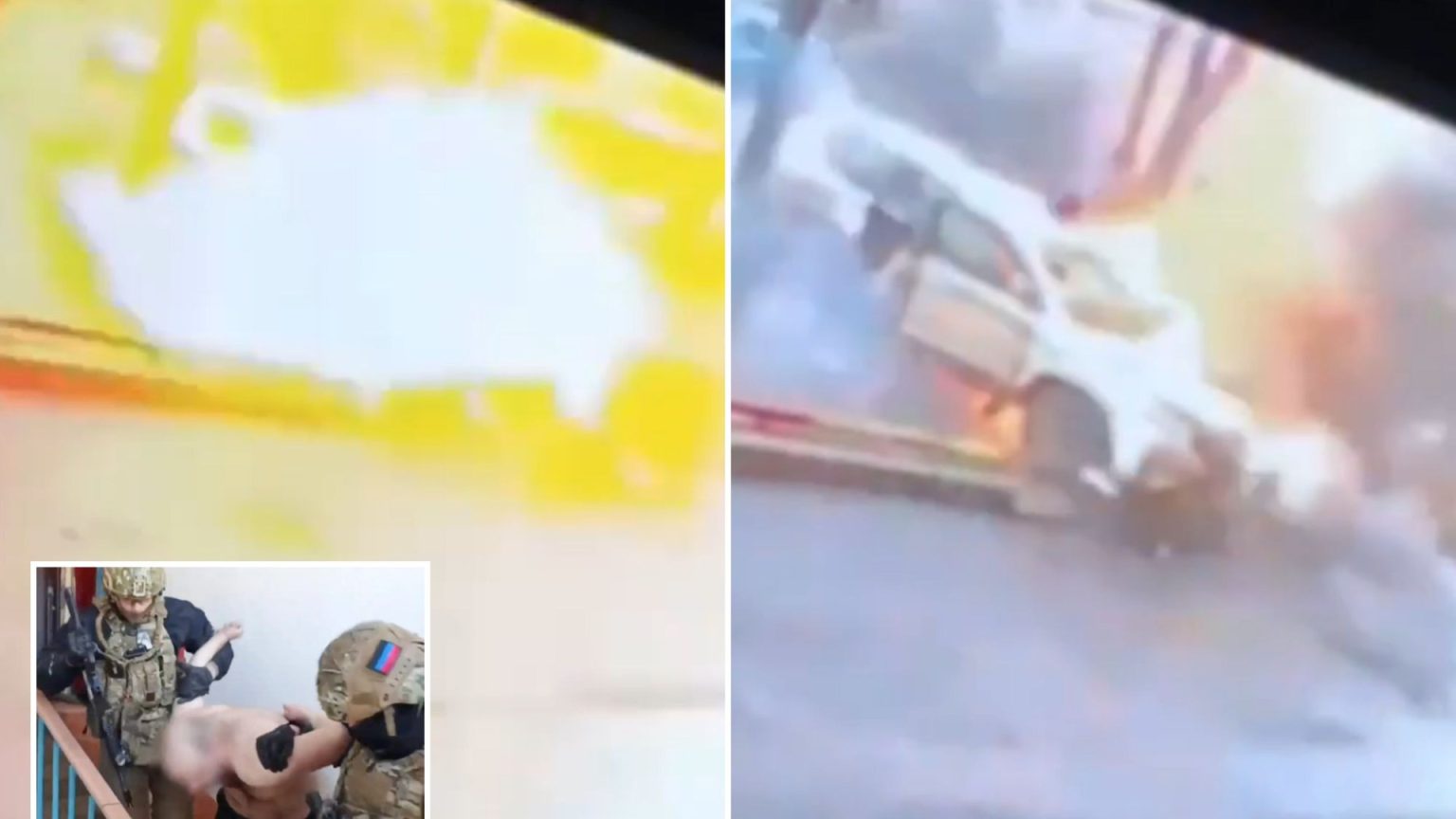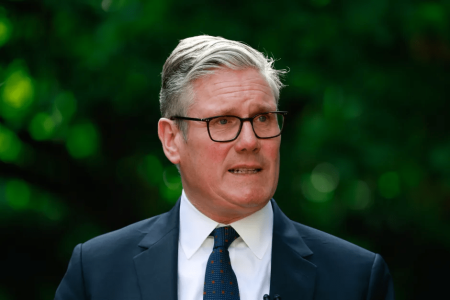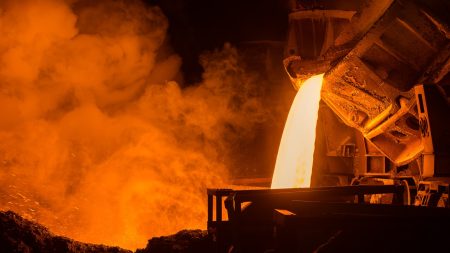Paragraph 1: In a dramatic incident caught on CCTV, Sergey Yevsyukov, the former head of the Olenivka prison in occupied Donetsk, was killed when his car exploded in a fiery blast. The explosion, suspected to be a targeted assassination orchestrated by Ukrainian forces, occurred as Yevsyukov was sitting in the driver’s seat of his Toyota Land Cruiser. His wife, who was entering the passenger side, was thrown clear by the force of the explosion and survived with serious injuries. The incident is believed to be retribution for Yevsyukov’s alleged involvement in the torture and abuse of Ukrainian prisoners of war held at Olenivka.
Paragraph 2: The footage of the attack shows Yevsyukov already seated in the vehicle while his wife approaches the passenger side. Seconds later, a powerful explosion engulfs the car in flames, sending debris and smoke billowing into the air. The bomb, apparently placed on the driver’s side, is believed to have killed Yevsyukov instantly. Prior to the explosion, security camera footage appears to capture an individual planting a device near the vehicle before fleeing the scene. The explosion took place near a busy road in Donetsk, highlighting the audacious nature of the attack.
Paragraph 3: Following the car bombing, Russian FSB security services swiftly apprehended a suspect. Video released by the FSB shows armed officers raiding an apartment and detaining the suspect at gunpoint. During questioning, the suspect reportedly confessed to detonating the bomb, stating he had been working with Ukrainian security services. He expressed regret for his actions, acknowledging that Yevsyukov had died and his wife was injured. The suspect’s confession, potentially delivered under duress, implied he felt exploited by Ukrainian intelligence.
Paragraph 4: Yevsyukov’s tenure as head of Olenivka prison was marred by accusations of systematic torture and abuse of Ukrainian prisoners. Ukraine’s Security Service (SBU) implicated him in numerous human rights violations, alleging he oversaw the infliction of severe physical and psychological torment upon captured Ukrainian soldiers. The SBU claimed Yevsyukov personally established a “torture chamber” within the prison, subjecting detainees to brutal treatment and the constant threat of death. They estimate over one hundred prisoners suffered under his regime.
Paragraph 5: Beyond the accusations of torture, Yevsyukov was also facing charges of mass murder in connection with a deadly explosion that occurred within Olenivka prison in 2022. The blast claimed the lives of 53 Ukrainian prisoners of war and injured 73 others. Ukraine asserts that Yevsyukov and his accomplices were responsible for the explosion, further solidifying his image as a brutal figure within the conflict. His assassination follows a similar car bombing weeks earlier that killed Russian naval commander Captain Valery Trankovsky in Sevastopol, Crimea.
Paragraph 6: The targeted killing of Yevsyukov marks a significant escalation in the ongoing conflict, highlighting the deep-seated animosity between the warring factions. While the suspect’s confession suggests Ukrainian involvement, official confirmation from Ukrainian authorities is pending. The incident underscores the brutal nature of the war, where acts of violence and retribution continue to escalate. The Olenivka prison, under Yevsyukov’s command, stands as a grim symbol of the suffering endured by prisoners of war, and his death is likely to be seen by some as a form of justice, while others will condemn it as an extrajudicial killing.











